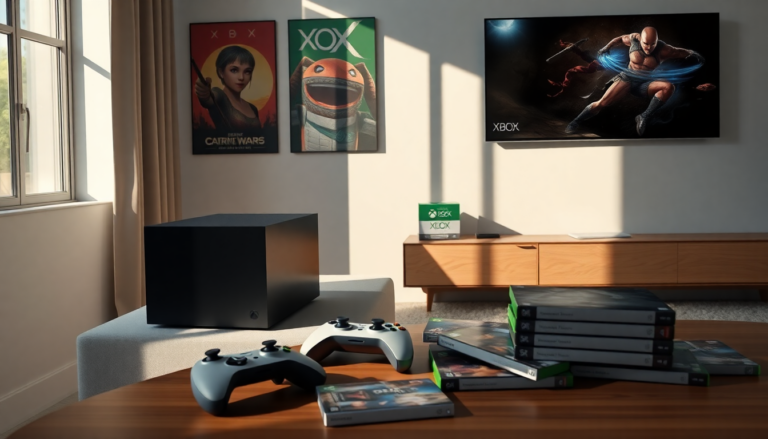Argomenti trattati
The Xbox brand has become synonymous with gaming since its debut in 2001. Initially introduced as a home video game console, it has since expanded into a comprehensive ecosystem that includes consoles, applications, online services, and game streaming. This overview will guide you through the major milestones in Xbox’s evolution, showcasing how it has adapted and thrived in a competitive gaming landscape.
The launch of the original Xbox
In November 2001, Microsoft launched the original Xbox in North America, marking its entry into the gaming console market. This was a significant move, as it was the first major console from an American company since the Atari Jaguar ceased production in 1996. The Xbox featured impressive hardware for its time, including a 733 MHz Intel Pentium III CPU and a 233 MHz Nvidia GeForce 3-based GPU. With over 24 million units sold by May 2006, the Xbox established a solid foundation for Microsoft’s gaming ambitions.
Introducing Xbox Live
One of the standout features of the original Xbox was the launch of Xbox Live in November 2002. This online service allowed players to connect and compete in multiplayer games, significantly enhancing the gaming experience. While competing services like the Dreamcast’s online offerings were free, Xbox Live required a subscription. However, its robust servers and features like friend lists made it a success, particularly with titles like Halo 2, which became a phenomenon.
The success of Xbox 360
The Xbox 360 launched in 2005 and quickly became a major player in the gaming industry, selling 86 million units by October 2015. It introduced a new level of online connectivity and multimedia capabilities, allowing users to stream music and videos, and even purchase digital content directly from their console. The Xbox 360’s success was bolstered by a wide array of popular games and the launch of Kinect, a motion-sensing device that expanded the console’s appeal.
Transitioning to Xbox One
In November 2013, Microsoft released the Xbox One, positioning it as an all-in-one entertainment system. The console faced some backlash due to initial digital rights management policies. However, after addressing concerns about online connectivity and game sharing, it found its footing in the market. The Xbox One also introduced features like backward compatibility with Xbox 360 titles, enhancing its library of available games.
The current generation: Xbox Series X and Series S
The latest iteration, the Xbox Series X and Series S, launched in November 2020. These consoles represent the ninth generation of gaming hardware and offer significant improvements in performance, graphics, and speed. With the Series X capable of delivering 4K resolution at up to 120 frames per second, it competes strongly against Sony’s PlayStation 5. Meanwhile, the Series S caters to a more budget-conscious gamer without sacrificing performance completely.
Expanding the Xbox ecosystem
In recent years, Microsoft has broadened the Xbox brand beyond just hardware. With services like Xbox Game Pass, players can access a vast library of games for a monthly subscription fee. This shift signifies a change in strategy, focusing more on player engagement rather than merely selling consoles. Xbox Cloud Gaming, also known as Project xCloud, allows players to stream games to various devices, further enhancing accessibility and convenience.
Looking to the future
The future of the Xbox brand appears promising. With ongoing developments in cloud gaming and a commitment to delivering high-quality games, Microsoft is well-positioned to remain a key player in the gaming industry. As the landscape continues to evolve, the focus will likely shift toward providing seamless gaming experiences across platforms and devices.
In summary, the Xbox brand has transformed significantly over the years, from a standalone console to a holistic gaming ecosystem. With innovations in technology and a strong emphasis on online connectivity, Xbox continues to shape the future of gaming.

